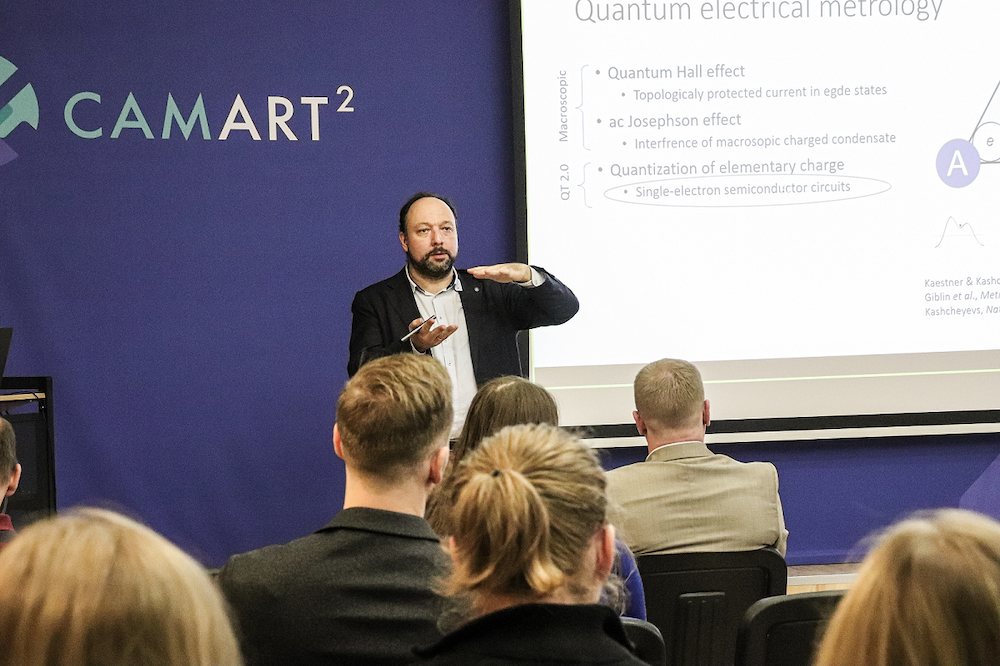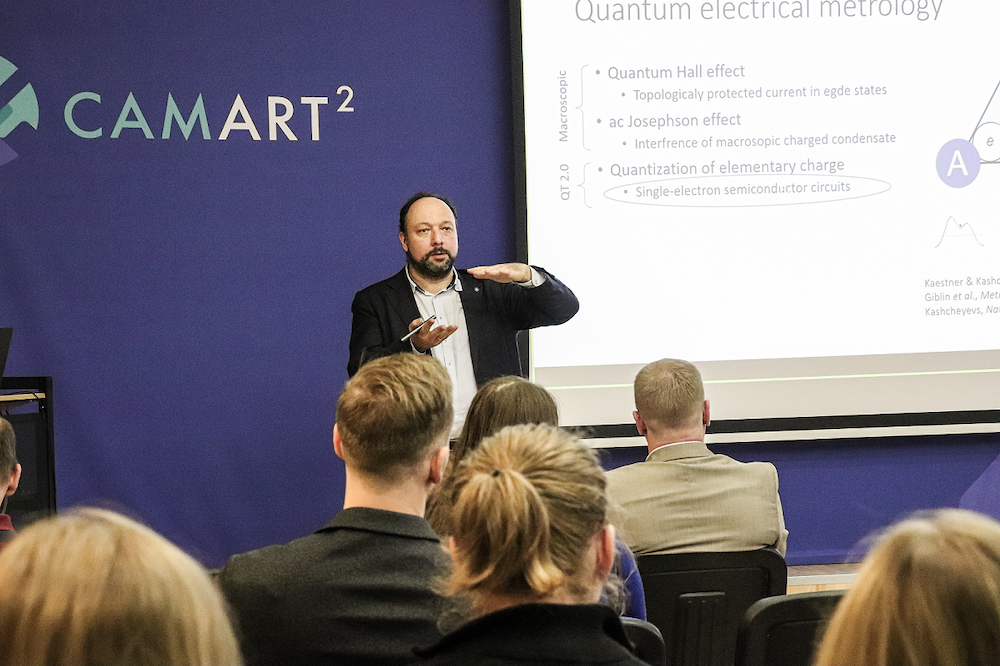The goal of the European project “Towards an Excellence Center in Quantum Photonics in Latvia (ToEQPL)” is to promote the development of quantum photonics in Latvia, strengthen the contribution of Latvian scientists in this field, and position Latvia as a recognized center for quantum photonics at the European level.
Quantum photonics is a new discipline that has emerged from the fusion of quantum technologies and integrated photonics. It gained momentum with the European Commission's “Quantum Flagship” initiative. The aim of the Latvian Quantum Initiative is to leverage the expertise of specialists from various fields, such as mathematics, computer science, materials science, physics, and engineering. The most prominent leaders of this initiative in Latvia are Professor Andris Ambainis and Professor Vjačeslavs Kaščejevs, who specialize in areas of quantum technology such as quantum cryptography and quantum algorithms.
Opportunity to Develop Quantum Photonics Research
The ToEQPL project aims to establish a center of excellence that will foster collaboration among various institutions, including the project coordinator, the Solid-State Physics Institute of the University of Latvia (ISSP UL), Riga Technical University (RTU), the University of Trento, and Troy University. By utilizing the material research capabilities of UL SPI, the initiative seeks to connect quantum algorithms and photonics, creating a stable quantum photonics ecosystem in Latvia.
“As the project coordinator, I see this initiative as a fantastic opportunity for ISSP UL to advance quantum photonics research and enhance Latvia's position in this important scientific field. By collaborating with foreign partners and promoting innovation, our goal is to position Latvia as a significant player in the quantum technology sector in Europe,” explains Dr. Aivars Vembris, the leading researcher at ISSP UL and head of the Organic Materials Laboratory.
Professor Christophe Couteau from Troy University emphasizes the potential of combining quantum technologies and photonics: “I believe this project is very important and timely. Quantum photonics—these two words, when viewed separately, highlight the significance of quantum technology and photonics. Together, they have an even greater impact. The goal is to create an ecosystem and a favorable environment for quantum photonics in Latvia. You already have significant achievements in both fields, and the idea of the project is to integrate them.”
Rapid Development of Quantum Technologies
At the international conference on quantum photonics held at ISSP UL, various topics were discussed, including organic quantum light sources, quantum communication systems, quantum sensors, and superconducting nanowire single-photon detectors. Representatives from all partner organizations in the ToEQPL project consortium, as well as researchers from the University of Latvia, presented at the event.
Professor Andris Ambainis noted after the event that quantum technologies are among the most relevant future technology directions in the world and are currently developing very rapidly.
“We can see this both in quantum computers, where increasingly powerful quantum devices are being built, and in quantum encryption, which is also being developed in Latvia. The initiated project plays a significant role in Latvia, as it enhances Latvia's potential in this very important field,” says A. Ambainis.
Professor Lorenzo Pavesi from the University of Trento praised the success of the conference, highlighting Latvia’s vast research potential: “We have come together because excellent research is being conducted here. Our goal is to build on the great work being done in Latvia to develop quantum photonics. By combining our international experience with the in-depth knowledge of the Latvian research group, we aim to advance quantum photonics technologies that can act as a catalyst for technology transfer and support the development of new industries.”

Photo: Promotional photo from the Quantum Photonics conference
Collaborating with World Experts
The conference was an important event for knowledge exchange, bringing together experts and researchers to share experiences and discuss the latest achievements in the field of quantum technologies. By fostering collaboration among scientists from various countries and institutions, the conference made a significant contribution to the development and innovation of quantum photonics.
Professor Vjačeslavs Kaščejevs was pleased to see a new generation of researchers from ISSP UL at the conference, who are strong in materials science and the fabrication of nanodevices, and are ready to adopt global expertise throughout the project's implementation. The scientist emphasized the importance of collaboration with world experts, which plays a crucial role in promoting scientific excellence.
“With this project, Latvia gains competencies specifically in these quantum applications. Therefore, the direction of quantum photonics through this project gains significant additional strength in Latvia's innovation ecosystem. The ToEQPL project represents the fruits we hoped for when launching the quantum initiative, as we see that the partners and project council consist of industry leaders on both European and global scales. By learning from the best, we can all grow, and scientific excellence does not remain confined to individual fields but is transferred to sectors where the accumulated human capital and knowledge can be applied beyond specific narrow domains. Being in the same research space with strong European institutions is a primary goal for our entire research environment,” emphasizes V. Kaščejevs.
